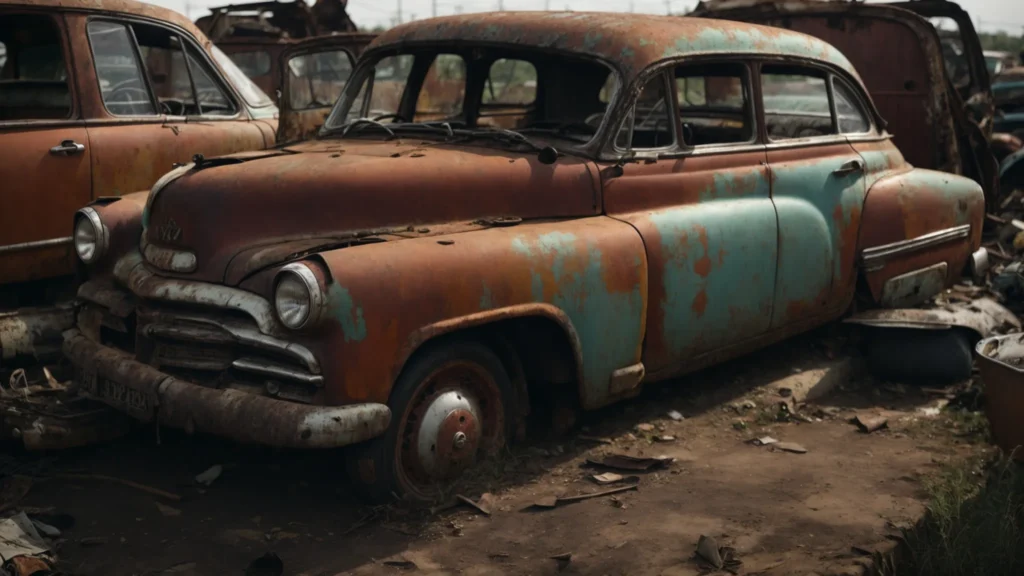Junk Cars: Getting Cash for Your Clunker
If you’re eyeing that old clunker in your driveway and thinking it’s time to say goodbye, you might be sitting on more than just a pile of rusty metal. Junk cars can be a surprising source of income, providing you know the ins and outs of the selling process. Understanding what your vehicle is worth, who to sell it to, and the legalities involved are crucial for a successful transaction. Whether it’s finding the right buyer or preparing your car for sale, this article will guide you step by step. Keep reading to discover how you can turn that seemingly worthless hunk of metal into cash.
Understanding the Value of Your Junk Car and Its Parts
When it comes to valuing your junk car, it’s not just about the age or aesthetics. In many cases, individual parts can be worth more than you might expect. Engines, transmissions, and even smaller components like GPS systems or alloy wheels can fetch a decent price on their own. Salvage yards often appraise these parts separately, factoring in their condition and demand. For those wanting a middle ground, services specializing in cash cars can streamline the selling process while still capturing competitive offers.
However, the location of your car can also impact its value. Proximity to a salvage yard or the cost of towing might affect the final offer. Additionally, the current state of the metal market could cause daily fluctuations in scrap prices, influencing how much cash you can get for your car’s metal content.
Legal Considerations When Selling a Junk Car for Cash
Before you sell your junk car for cash, it’s crucial to understand the legal requirements. The most important document is the title of the vehicle, which proves ownership. Without it, the process of legally transferring your vehicle to the buyer can become complicated, potentially leading to legal hurdles. Always ensure you have the title in hand before initiating a sale.
In some cases, if the car is very old or the title is missing, you might be able to sell it for scrap without a title. However, laws vary by state, and you may need to obtain a salvage certificate or a destruction certificate. This paperwork indicates that the vehicle is no longer roadworthy and adds a layer of legitimacy to the transaction.
Further, buyers are typically required to report purchases of junk cars to the local Department of Motor Vehicles (DMV). This step clears you from future liabilities that could arise from the vehicle once it’s no longer under your ownership. Knowing such legal nuances can help prevent potential pitfalls and penalties down the road.
Preparing Your Junk Car for Sale: Essential Steps
Preparation is key to getting the best value for your junk car. Start by removing all your personal belongings. You’d be surprised at how many people leave valuable items in their cars. Clearing the vehicle also makes it easier for buyers to evaluate it.
Next, it’s advisable to remove valuable parts if you plan to sell them separately or use them in another vehicle. This includes batteries, wheels, or aftermarket accessories that can be sold or repurposed. Keep in mind that certain buyers prefer purchasing a complete vehicle, so consider your selling options before stripping the car.
It’s also a good idea to give your car a superficial clean. While it won’t increase the car’s value significantly, a clean vehicle might be more appealing to a buyer, making the process smoother. And if your car is still operable, make sure to check and possibly top off fluid levels. A running car, even if it’s destined for the scrapyard, typically has higher value than one that doesn’t start.
Finding the Right Buyer: Junkyards vs. Private Buyers
The choice between selling to a junkyard and a private buyer largely depends on your car’s condition and your personal preference. Junkyards and scrap yards typically offer a quick, straightforward selling process, often with the option to tow your car for free. While the offer might be based primarily on scrap metal prices, it’s typically a no-hassle experience.
Conversely, private buyers may be interested in particular models for restoration projects or spare parts. Selling to a private buyer might yield a higher price, though it often requires more effort in terms of marketing and negotiations. There’s also the chance of encountering less scrupulous characters, so exercise caution.
Turning your junk car into cash requires a bit of savvy and effort. By understanding your car’s value, preparing it appropriately for sale, and navigating the legal landscape, you can ensure you’re getting the best possible return for your clunker. Safe and profitable selling!

